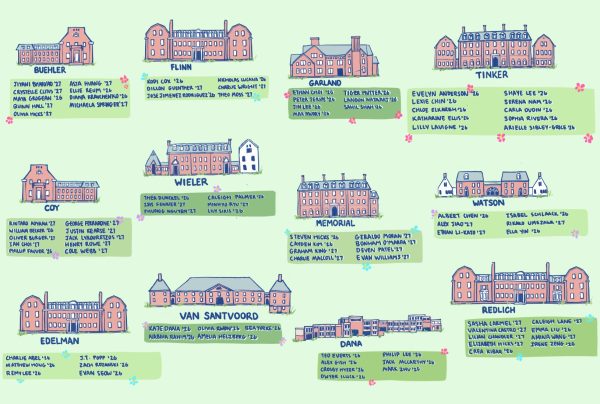How Do the Presidential Elections Work?
The 2020 presidential election is only a few months away, and U.S. citizens will find themselves casting a defining vote that will affect the future of the country.
The U.S. presidential election is held through an electoral college system. This differs from a simple majority rule used by over half of the world’s democracies, including France and Mexico. Dr. Rachel Myers, director of diversity and inclusion, said, “It’s worth a ‘refresher’ about the difference between the popular vote and the Electoral College. We are a school community that is global and not just national. We shouldn’t assume that everyone in the community fully understands how the election process in the United States works.”
According to the National Archives, “every state is allocated a number of votes equal to the number of senators and representatives in its U.S. Congressional delegation.” Then, according to the popular vote in that particular state, the electoral votes are either distributed accordingly, or all given to the victorious candidate. “American democracy is a tension between majority rule and minority rights,” said Mr. Thomas Drake, director of the Center for Global Understanding and Independent Thinking. Every U.S. president needs a majority of 270 out of 538 electoral votes to win the election.
A common misconception is that the winner of a state in terms of the popular decision will mean they receive all the electoral votes for that state. Although it is common for the majority winner of a state to receive all of the state’s votes, Nebraska and Maine distribute their votes according to the popular opinion. Additionally, in the other 48 states and D.C., members of the Electoral College are not legally obliged to cast their vote for the popular candidate. The ones who vote for a candidate different from whom they were pledged to are called “faithless electors.” In the 2016 elections, there were seven faithless voters, two of whom defected from Trump and five from Clinton.
The Electoral College has overridden the popular decisions for two of the past three presidencies. In 2016, when Donald Trump lost to Hillary Clinton by three million popular votes, the margin was five times the size as the previous largest margin. With the upcoming 2020 elections, the Electoral College can override the popular vote again, potentially leading to similar outrage that followed the 2016 elections.
Fear has also grown in regards to the fact that the results of the election could push the growing partisan divide over the edge. Dr. Myers reflected on the impact this could have on the community: “There’s always a chance that elections can be divisive among communities such as ours. We have a myriad of political identities and if we don’t work on practicing civil discourse, meaning that understanding is at the core of our verbal exchanges, then we will have a more fractured community. We don’t have to agree with one another, but we need to be able to allow for respectful, open discourse.”
Mr. Drake added, “The election will be a test of the political culture; in what ways is it supportive of rational discourse and critical examination of positions held by various candidates; that part of democracy is essential.”
The history of the Electoral College stems back to the founding of the United States. An original argument for the implementation of the Electoral College was the assumed incapability for the common folk to vote intelligently and informedly. The Electoral College was further cemented in U.S. history when James Madison shut down requests for a direct election, citing that the Northern states would be severely outnumbered in sheer population if slaves’ votes were tallied.[efn_note]https://time.com/4558510/electoral-college-history-slavery/[/efn_note] The process has been relatively unaltered since then.
Over the next few months, presidential candidates Joe Biden and President Trump will continue to campaign around the country, especially in the “swing” states, such as Florida, Michigan, and Virginia, that are often the difference between victory and defeat. Dr. Myers said, “Whoever is elected President of the United States has to make historic change—I’m talking F.D.R. ‘The New Deal’ type of moves—to guide us through relief, reform, and recovery from this pandemic. In fact, I think this is going to be the most important Presidential election I cast a vote for in my whole lifetime.”




